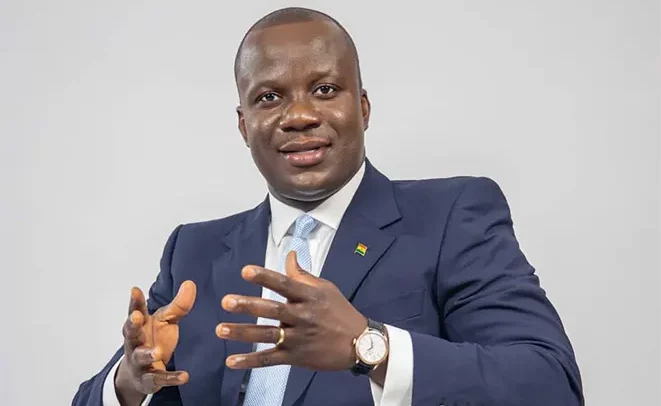Samuel Abu Jinapor
The Minority in Parliament has called on the government to immediately suspend an agreement with the United States under which Ghana is accepting third-country nationals deported from America.
The opposition lawmakers argued that the deal is unconstitutional, exposes the country to serious security risks, and undermines Ghana’s long-standing foreign policy traditions.
The call follows President John Dramani Mahama’s recent confirmation that Ghana had agreed with Washington to serve as a reception point for deportees who are nationals of other African countries but are being expelled from the United States.
The disclosure, made during the President’s first media encounter of his second term earlier this month, has triggered widespread debate about Ghana’s role in America’s tough immigration enforcement drive.
At a press conference in Accra yesterday, the Ranking Member on the Foreign Affairs Committee, Samuel Abu Jinapor, said the development not only sidesteps Parliament’s constitutional role but also contradicts clear rulings of the Supreme Court.
“Article 75 of the 1992 Constitution is unequivocal. Every treaty, agreement or convention with another state must be laid before Parliament for ratification. The government’s conduct in operationalising this arrangement without approval is a flagrant violation of our Constitution and an affront to the authority of the Supreme Court,” he stated.
The Minority drew parallels to the 2016 controversy in which the government accepted two Guantanamo Bay detainees without parliamentary approval, a decision later declared unconstitutional.
In that case, the Supreme Court held that even agreements made through informal diplomatic notes must be ratified before they can bind the Republic.
“It is disturbing that the same administration which oversaw that constitutional breach is now treading the same path,” Mr. Jinapor warned, insisting that the Foreign Affairs Minister’s claim that the deal was “merely a memorandum of understanding” was untenable.
Beyond the constitutional concerns, the caucus expressed alarm about the broader diplomatic consequences.
Ghana, it argued, has for decades built a reputation as a principled and independent voice in international affairs, committed to non-alignment, regional solidarity, and the protection of human rights.
Mr. Jinapor asserted that by agreeing to accept deportees on behalf of the United States, the country risks being viewed as complicit in policies critics describe as discriminatory.
“Regional integration is about voluntary movement of people, not forced deportations orchestrated by a non-ECOWAS country,” the Minority stressed.
According to the Minority, already, some of the deportees brought into Ghana are reported to be challenging the government in court over alleged breaches of their rights.
The Ranking Member said despite these legal actions and international concern, about 40 more individuals are said to be scheduled for transfer under the same arrangement.
The Minority is therefore demanding that government suspend implementation of the deportation deal until Parliament has had the opportunity to examine and ratify it.
They are also asking for full disclosure of the agreement’s terms, clarity on security measures, and assurances that Ghana’s international image will not be compromised.
“Ghana’s reputation as a law-abiding democracy cannot be sacrificed. We urge government to respect the Constitution and protect our national interests,” Mr. Jinapor intimated.
By Ernest Kofi Adu, Parliament House


